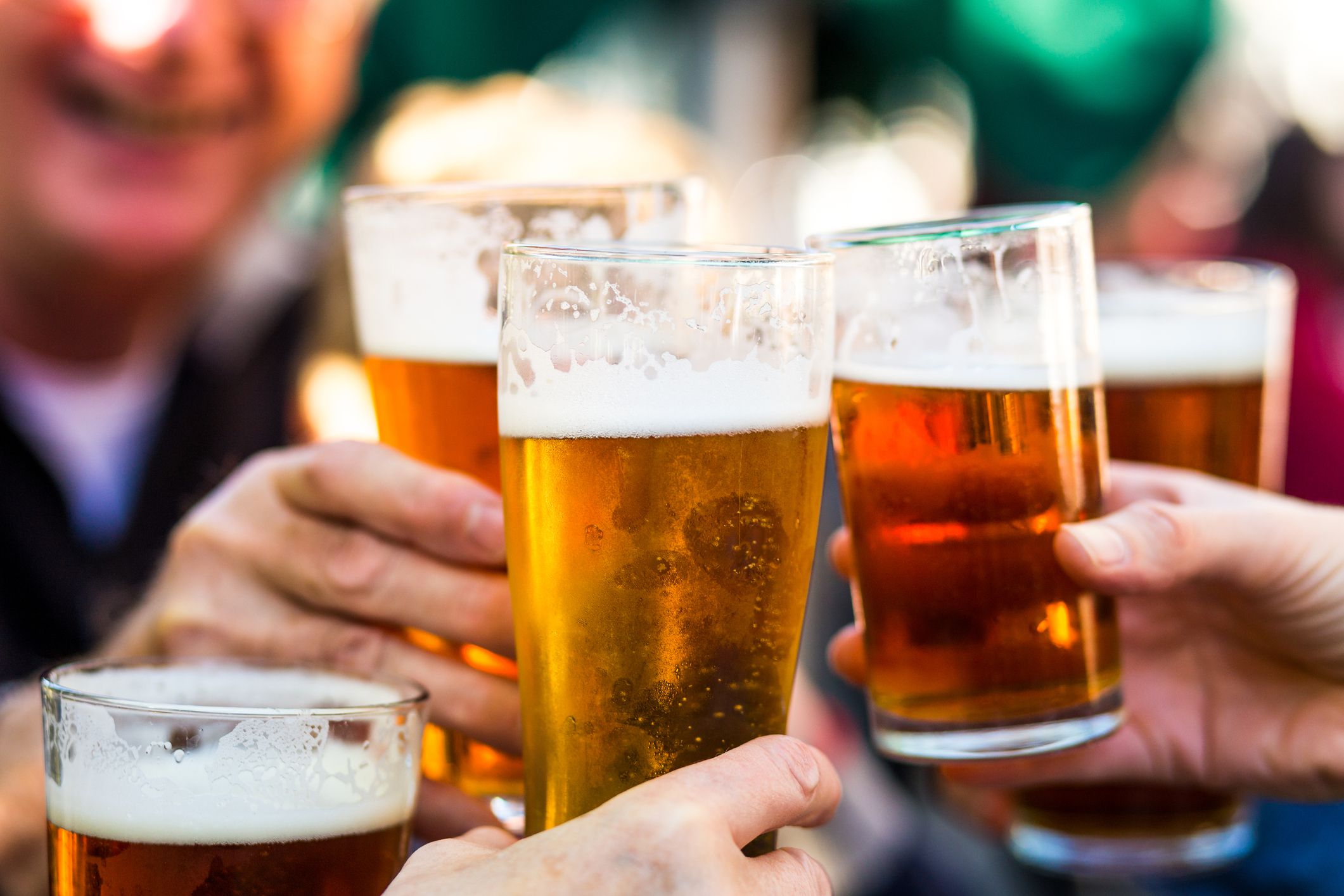How many beers to get drunk?: Unlocking the Secret of 2024
Posted on : March 12, 2024 By Savan

The number of beers required to become drunk varies significantly among individuals due to several factors. These factors include the alcohol content of the beer, an individual’s body weight and metabolism, tolerance to alcohol, food intake, and hydration levels.
Following are the points which will let you understand How many beers to get drunk:

Table of Contents
Alcohol Content of Beer:
The alcohol by volume (ABV) percentage of the beer is a crucial factor. Beers with higher ABV percentages contain more alcohol and can lead to quicker intoxication compared to lower ABV beers.
Body Weight and Metabolism:
Heavier individuals typically require more alcohol to feel intoxicated compared to lighter individuals. Metabolism also plays a role, as it affects how quickly alcohol is processed and eliminated from the body.
Tolerance to Alcohol:
Regular drinkers often develop a tolerance to alcohol, meaning they need more alcohol to achieve the same level of intoxication over time. Conversely, individuals with lower tolerance levels may feel drunk after consuming fewer beers.
Food Intake:
Drinking on an empty stomach typically leads to faster intoxication compared to drinking while eating food. Food in the stomach slows down alcohol absorption into the bloodstream, potentially delaying the onset of intoxication.
Hydration Levels:
Staying hydrated can slow down alcohol absorption and lessen its effects. On the other hand, dehydration can exacerbate the effects of alcohol and lead to quicker intoxication.
It’s important to note that the effects of alcohol are not solely determined by the number of beers consumed but also by individual factors and circumstances. Additionally, alcohol affects judgment and coordination, so it’s essential to drink responsibly and know one’s limits to avoid excessive alcohol consumption and its associated risks, such as impaired driving and health problems. If alcohol is consumed, it should be done so responsibly and in moderation.
In addition to the factors mentioned earlier, several other variables can influence this.
Rate of Consumption:
Drinking beer quickly can lead to faster intoxication compared to drinking the same amount over a more extended period. Rapid consumption can result in a higher blood alcohol concentration (BAC) and more pronounced effects.
Gender:
Generally, women tend to have a lower tolerance to alcohol than men. This is partly due to differences in body composition, such as higher body fat percentage and lower levels of the enzyme alcohol dehydrogenase, which helps metabolize alcohol.
Genetics:
Genetic factors can influence how an individual’s body processes alcohol. Some people may have genetic variations that affect their ability to metabolize alcohol efficiently, leading to differences in tolerance and susceptibility to intoxication.
Mental and Physical Health:
Mental health conditions, medications, and physical health can also impact how alcohol affects an individual. Certain medications or health conditions may interact with alcohol, amplifying its effects or increasing the risk of adverse reactions.
Environment and Context:
The social environment and context in which drinking occurs can influence how much alcohol is consumed and how quickly intoxication occurs. Peer pressure, social norms, and the availability of alcohol can all play a role.
Previous Experience:
Past experiences with alcohol can shape an individual’s tolerance and response to alcohol. Someone with prior experience consuming alcohol may have a better understanding of their limits and how alcohol affects them.
in conclusion
It’s essential to approach alcohol consumption with caution and awareness of these various factors. Responsible drinking involves understanding one’s limits, pacing oneself, staying hydrated, and avoiding risky behaviours such as driving under the influence. If someone is unsure about how alcohol may affect them, it’s best to err on the side of caution and moderate their intake accordingly. Additionally, seeking guidance from healthcare professionals or addiction specialists is advisable for individuals with concerns about alcohol use or its impact on their health.
Share this articlePosted on : March 12, 2024 By Savan
Join Our Club

"Stay Informed, Stay Ahead – Join Our Club Today!"



















